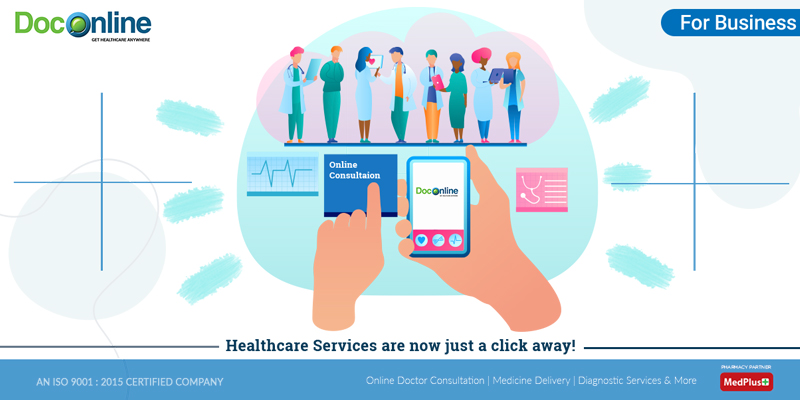Navigating the Future of Medication With Subscription-Based Medical Care Solutions
As the healthcare market advances, subscription-based services become a critical version guaranteeing to reshape individual care delivery. With the possible to provide structured, cost-efficient services through predictable rates and individualized focus, these services stand at the forefront of contemporary medical innovation. As we consider their surge, one have to ponder the effects of incorporating such systems right into existing health care structures. What challenges do they position in regards to information safety and equitable gain access to, and exactly how might they redefine the patient-provider connection? The answers to these inquiries might fundamentally alter our strategy to medical care.
Surge of Subscription Healthcare
As medical care systems around the globe face enhancing pressures from climbing prices and need for services, the advent of subscription-based medical care designs has actually become a transformative pattern. This innovative approach is interfering with conventional healthcare shipment by providing a predictable, flat-rate settlement structure for clinical services. Rooted in the concepts of attendant medication, subscription-based healthcare allows suppliers to focus on individualized person care while concurrently handling functional efficiencies.
The enhancing customer demand for openness and predictability in healthcare costs has driven the shift in the direction of this model. Subscription-based solutions usually provide direct access to health care professionals, which can lower the administrative worries linked with insurance coverage claims and repayments.
This version is gaining traction among varied doctor, from main treatment medical professionals to specialized clinics, by aligning monetary rewards with preventative and continuous treatment. By moving the emphasis from volume to value-based treatment, subscription health care has the potential to improve the landscape, cultivating a more lasting and patient-centered method to health and wellness administration.
Benefits for People

Furthermore, subscription-based services commonly stress preventative treatment, urging regular check-ups and wellness testings. This proactive strategy can result in early detection of health and wellness concerns, possibly improving results and reducing lasting healthcare expenses for individuals. Such models normally supply clear rates, permitting people to much better recognize their medical care costs and stay clear of unanticipated clinical expenses.
The customized nature of subscription-based health care also improves individual experience. People can receive tailored medical care plans that fit their details demands, fostering an extra patient-centric strategy.
Modern technology's Duty in Improvement

Expert system (AI) plays an important function in predictive analytics, helping in very early diagnosis and customized therapy plans. AI formulas analyze substantial datasets to identify patterns that could be overlooked by human observation, thus enhancing scientific decision-making. Furthermore, digital wellness records (EHRs) improve client details administration, making certain connection and coherence of care throughout numerous services and carriers.
Blockchain technology boosts data security and privacy, crucial for keeping person rely on electronic platforms. It allows safe and secure and see this page transparent deals of medical information, making certain that sensitive information continues to be safeguarded. With the integration of artificial intelligence and AI, blockchain can automate intricate healthcare procedures, reducing administrative burdens.
Considerations and difficulties
While modern technology propels the capacities of subscription-based health care solutions, it also presents a set of obstacles and considerations that have to be resolved to ensure successful application. One significant difficulty is the equitable availability of these services.
Data personal privacy and safety represent another crucial consideration. Subscription-based services often entail the collection and storage of vast amounts of personal health details. Providers need to abide by rigid information security regulations look what i found to keep patient depend on and avoid unauthorized access, which might result in significant ethical and legal effects.
In addition, the sustainability of registration models poses a difficulty. As medical care needs develop, keeping an affordable equilibrium in between membership fees and solution high quality is vital to protect against individual discontentment and attrition. Moreover, incorporating these services within typical health care systems calls for seamless interoperability in between platforms, which is often a facility and resource-intensive endeavor. Addressing these difficulties is essential as subscription-based health care solutions remain to progress and expand.
Future Effects for Medication
Subscription-based healthcare services are poised to considerably influence the future landscape of medicine by reshaping how care is accessed and delivered. These models provide the prospective to democratize healthcare access, offering clients with more customized and timely treatments. By leveraging modern technology, such as telemedicine and information analytics, membership services can help with continuous monitoring and customized wellness administration, hence boosting results and lowering the worry on standard health care systems.
As these services gain grip, they can promote a change in the direction of preventative treatment, highlighting the significance of early discovery and administration of chronic problems. This positive approach might eventually decrease medical care costs by mitigating the demand for costly therapies developing from late-stage disease monitoring. Membership models use a scalable solution to attend to disparities in medical care access, especially in underserved or rural populaces.
However, the shift in the direction of subscription-based designs demands dealing with governing and ethical considerations, consisting of information privacy and equitable accessibility. As the industry progresses, joint efforts between policymakers, modern technology developers, and doctor will be critical to establishing robust structures that guard client rate of interests while cultivating innovation. Ultimately, these services assure to add significantly to a much more effective, patient-centered medical care ecosystem.

Conclusion
Subscription-based healthcare services stand for a substantial advancement in the clinical area, offering foreseeable expenses and customized care that enhance accessibility and focus on preventative procedures. As the health care landscape develops, subscription models are positioned to play a vital function in shaping the future of medicine.
As the medical care market develops, subscription-based services arise as an essential design promising to improve individual care distribution.As health care systems around the world face raising stress from rising prices and demand for services, the development of subscription-based health care models has actually emerged as a transformative fad (subscription based healthcare).With the increase of subscription-based healthcare versions reshaping typical health care delivery, individuals are beginning to experience substantial benefits from this cutting-edge method. As healthcare needs evolve, preserving an affordable equilibrium between membership fees and solution top quality is crucial to prevent individual dissatisfaction and attrition.Subscription-based health care solutions are poised to substantially influence the future landscape of medication by improving how treatment is accessed and supplied
Comments on “The Future of Medicine: Checking Out Subscription Based Healthcare Versions”